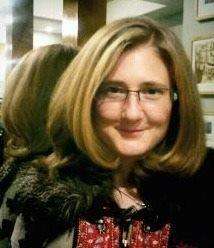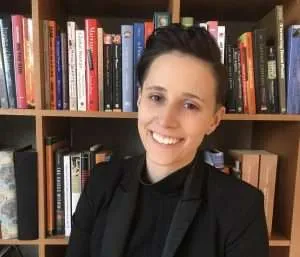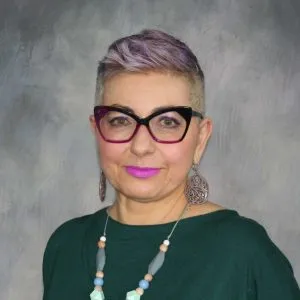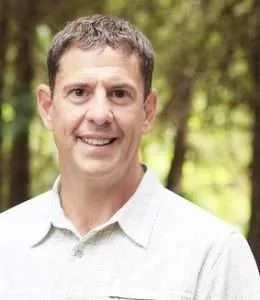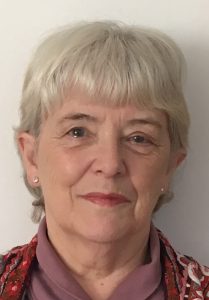Editorial Note:
This profile of Melissa Scardaville, PhD is brought to you through a partnership between Applied Worldwide and the Association for Applied and Clinical Sociology (AACS). Thank you to AACS and all those who made valuable contributions to the Profiles in Applied & Clinical Sociology series.
This profile is presented with the intentions of: 1) providing students with examples of applied sociology, 2) providing market value to sociological skills and services, and 3) promoting the work of individual sociological practitioners and organizations. You can learn more about AACS at AACSnet.net.
Melissa Scardaville, PhD
Melissa Scardaville earned her B.A. in Sociology from Vassar college and later went on to earn a M.A. and then Ph.D. in Sociology from Emory University in Atlanta, Georgia. She established her career as an applied sociologists through a lot of networking, telling us “while I was finishing my PhD, I reached out to friends and friends of friends. It was through those connects that I received a job offer from a contract research firm.”
As an applied and clinical sociologist, Dr. Scardaville now leads “social science projects and tasks that focus on health, education or workforce development” at that contract research firm. More specifically, she offers services such as “study design, survey design, cognitive interviews, semi-structured and unstructured interviews, focus groups, qualitative analysis, writing (internal reports to peer-reviewed journal articles), and methods training” through that firm. Her “clients are federal agencies and foundations.” When we asked what kinds of skills the research firm looks for when hiring sociologists, she told us:
“Some type of data management or data collection skills either qualitative or quantitative. Ability to work collaboratively in teams. Experience working on multiple projects simultaneously is a plus.”
Melissa Scardaville, PhD
Read the full interview with Dr. Scardaville below to learn more about her career as an applied sociologist working in a contract research firm!
Using Sociology in Practice
How do you use sociological research methods in practice?
While all social science disciplines offer some degree of methods training, I think sociology is unique in that we are taught to connect theory, methods and data so that each aspect informs the other. In that sense, while I use methods – particularly interview and qualitative data analysis – constantly, they are never divorced from the theoretical framework of that particular study. It is one thing to devise a powerful interview question. It is another to understand why we are asking it, how it should be asked, and who should be doing the asking.
How do you use sociological theory in practice?
I constantly rely on my background in organizational theory, not simply to design studies, but to navigate and better understand my own working environment.
Lessons for Future Practitioners
What types of courses should graduate students take in preparation for a career in your type of practice?
Methods courses are invaluable. It is not just learning the mechanisms of a certain method but understanding just enough so you know what types of skills you don’t have so you can bring someone else onto your project or team. If possible, I would take a few content courses outside of sociology so you can understand how other disciplines conceptualize problems and their solutions. Interdisciplinary work is highly valued as an applied sociologist since it is rare that you will only be working with other sociologists.
What types of experiences should undergraduate students seek in preparation for a career in your type of practice?
I would recommend looking at summer internships or opportunities to receive college credit for a temporary job. Many research organizations run a summer internship program. If that is not feasible financially, I would try to get any employment that is outside of your college. It’s important to have a frame of reference about work that is not just based on your school experiences.
What types of experiences should graduate students seek in preparation for a career in your type of practice?
I highly recommend doing an internship or part-time work during your graduate training at a type of organization at which you may want to work post PhD. Not only will you understand the requirements of that field (and determine if it is indeed a good fit for you) you will start building your network, which will be invaluable. For those who find networking uncomfortable, think of it as relationship or connection building where you are forming ties to people with whom you share a similar outlook or goal.
How would you describe the daily life of an applied or clinical sociologist?
Applied and clinical sociologists do so many different things that their days would be incredibly varied. For me, my days are shaped very much by my current projects, which may be as few as two or as many as seven. Currently my days are filled with qualiative data analysis on an education-related project frequently interrupted by virtual meetings. I typically begin my day at 8:30 and end by 4:30 with a nice dog walk during lunch.
What advice do you have for aspiring applied and clinical sociologists?
Do not view the applied career path as “less than” or as an alternative taken only by those who could not get an academic job. For me, being an applied sociologist has been incredibly rewarding and likely afforded me more opportunities than most academic positions. Also take Granovetter’s weak tie argument to heart!

